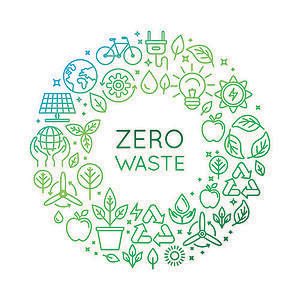As academics specializing in the travel, tourism and hospitality (TTH) industry, we have trained and advised dozens of companies in their journey towards sustainable businesses. There is so much more to sustainable travel & tourism than the generic statements you see on brand websites – which are invarably an attempt to greenwash.
TTH firms are accountable and must take the changes taking place seriously, from Greta Thunberg’s movement to new priorities in the World Economic Forum´s agenda or the ever-growing list of world moguls taking on a leading role in the fight against climate change. For that reason, we have identified 10 sustainable tourism trends that will influence business strategies right now and the best practices that can be implemented.
Each trend is an opportunity for TTH firms to provide servi ces that align with consumer values, the Sustainability Development Goals agreed by the Member States of the United Nations as part of the Agenda for Sustainable Development in 2030, and the triple-bottom line accounting framework to evaluate business value in a broader perspective that includes social, environmental and financial outcomes.
What is Sustainable Travel & Tourism?
The definition provided by the World Tourism Organization (UNWTO), depicts sustainable travel and tourism as follows:
“Tourism that takes full account of its current and future economic, social and environmental impacts, addressing the needs of visitors, the industry, the environment and host communities.”
Sustainable travel entails embracing practices that aim to minimize the adverse impacts and maximize the positive effects of tourism, promoting responsible and eco-conscious exploration.
10 Sustainable Tourism Practices
So let’s take a look at 10 practices and trends that hospitality and tourim businesses can start to implement today in order to take care of the planet.
#1 – The time for isolated green initiatives is over
Green-washing is ever less acceptable. Current challenges demand a comprehensive sustainable business model—one which places sustainability at the core of your corporate strategy, business practices and operations.
The bottom line: Come out with a new way of doing business, one that cares and walks the talk.
Building a sustainable business strategy won’t be quick or easy—but waiting is not an option.
#2 – Carbon emission compliance is no longer an option
TTH firms need to have a greenhouse gas inventory for their companies. Still today not many companies have one.
The bottom line: Compete for being better on the environment and talk about it –because it is the big trend (and will change social norms).
#3 – Implementing an ambitious emission plan pays off
Companies are accountable for reducing their emissions. Some can try a modest carbon-neutral way. A better objective is to reduce overall emissions by 5% each year.
Leading TTH companies should go all the way down the road just like Microsoft did in 2020, when it stated that by 2030 “Microsoft will be carbon negative, and by 2050 Microsoft will remove from the environment all the carbon the company has emitted either directly or by electrical consumption since it was founded in 1975.”
The bottom line: Which TTH company will take up the torch and be the first carbon negative company
Offsetting, which has now become the preferred get-out clause, especially for the aviation sector, is no longer an option. It’s cheap and focuses on forests, which are not a secure, long-term storage of carbon (see California or Australia). What we really need are sustainable fuels to power aviation in the future, this will never happen if everybody is just buying cheap offsets.
#4 – Data for action, not just analysis
The old saying you can´t manage what you can’t measure
has never been more true. But how so
First, assess emissions and formulate a strategy to reduce footprint.
Second, set up a dashboard with key sustainability indicators.
Finally, be certain about your sustainability strengths when making prospective decisions: Can you foresee the impact of your next hotel opening? Is your next merge with a travel operator sustainable, i.e., positive in long-term economic standards?
The bottom line: Measuring processes and managerial decisions is the way to solve the sustainability challenge and, by doing so, to keep stakeholders informed about it.
Scorecards are critical in sustainability assessment, implementation and forecasting. Just like the newest Bloomberg Green´s Data Dash Better data will lead the way to a sustainable future.
#5 – Less bottom-line operational mindset, circular economy and sustainable resource management
From theory to harsh reality. TTH firms are increasingly aware of the importance of managing world´s limited resources. It is time to reduce wasteful consumption of resources as much as possible by reusing all available resources and minimizing waste.
The bottom line: Actively promote the development of multi-stakeholder systems with suppliers, local community and customers.
Sustainable resource management means reduction, better planning and management of resources: single use plastic, green energy, electricity, water; textile, chemicals, raw materials to name just a few.
#6 – Food waste is not an option (if it ever was)
One resource that requires special attention is food. Food has cultural, social, symbolic and heritage significance. As research shows, the food waste challenge can and must be solved with management practices and innovations.
The bottom line: Food waste says it all: a shame for humankind and the planet.
Our latest research on food waste suggests that the introduction of different management innovations provides financial benefits in terms of cost savings, cost avoidance and revenue growth. Yet, professionals lack systematic implementation of waste reduction strategies.
#7 – Speed up business action by aligning with Sustainability Development Goals
Sustainability is not just climate change. Pay close attention to other UN Sustainable Development Goals (SDGs) and pledge to them. Several SDGs fall squarely into TTH companys’ core business principle: people service. For example, SDG8: decent work and economic growth.
Bottom line: TTH companies must pay attention to skilled labor shortage, exploitation of labor, irregular working hours, fight slavery and trafficking.
#8 – Be proactive with global environmental policy
Until recently, firms were compliant with local government regulations and policies. The road to sustainability has provided legitimacy to global players, such the UN Agenda 2030. TTH firms must get actively involved with these regulatory bodies and the new international global development agendas.
The bottom line: Collaborate with global players as they bet on more ambitious sustainability goals than local institutions.
Compliance was yesterday. Since ordinary politics has done such a poor job in proactively tackling sustainably, companies need to do whatever they can and more.
#9 – Put Environmental, Social, and Governance (ESG) in your corporate agenda
Environmental, Social, and Governance (ESG) criteria are the three central factors taken into account when measuring the sustainability and societal impact of investment in a company or business. All the largest private equity investment funds have pledged to the Sustainability Standards and Policies laid out by the World Bank’s International Finance Corporation.
The bottom line: Hedge funds and private equity will prioritize investments in those companies that incorporate ESG provisions proactively.
#10 – Green-washing is never an option
It is time to answer those hard hitting, inconvenient questions: Inasmuch as airlines say otherwise, there is no sustainable cheap travel. Likewise, to this date, luxury accommodation and transportation are not sustainable businesses.
The bottom line: Customers are more educated than ever and are increasingly making wise decisions. The reputational damage of misleading customers will have serious implications for the future of TTH companies. Go back to trend #1 and step up your sustainability efforts in response!
There has been a massive change in the perception of responsibility for the environment in last 5-10 years. Individuals make their choices more critically and expect companies to make significant contributions as well.
To talk the talk is no longer enough – reputational risks are now very real. Change must be seen as an opportunity. We have already supported many corporations to get a head start with clear benefits for early adopters implied.
EHL Hospitality Business School
Communications Department
+41 21 785 1354
EHL




